Introduction:
Imagine you’re faced with a crucial decision: you need to choose which data vendor will supply your valuable market data. But how do you make the right choice? Is it about getting the best price, the highest data quality, or ensuring your dataset is always complete, even if that means compromising on quality? What if you have different requirements for each data field or group of data fields? Balancing these factors can be challenging. In this blog post, we delve into the fascinating world of “waterfalling” or cascading strategies. Here, you’ll discover how to define priorities and which four strategies can help you to consistently make the best decision.
Table of Contents
Scenario 1: Basic waterfalling
In the basic waterfalling scenario, you use a simple yet effective approach. Imagine that data vendor A provides all the data you need, which is fantastic! But what if they miss a part of your data needs? No problem, you simply switch to data vendor B for the remaining data. If this vendor also misses some data, you move on to data vendor C, and so on. This method is not only effective but also easy to set up, as long as you have the correct entitlements of each vendor’s data, which is absolutely required. This is the simplest way to implement waterfalling, but it may be expensive as well..
Scenario 2: Field groupings
In this scenario, you have the ability to define ‘field groups’, allowing you to make clear distinctions between different groups of data fields. For example, you might treat BID and ASK datafields as one fieldgroup, and the OPEN, HIQH, LOW, and CLOSE fields as another. For the first fieldgroup, you prioritize data vendor A, then B, and finally C. For the second fieldgroup, which may be less critical and where you want to save costs, you could go directly to cheaper data vendor B. With this smart setup, you can ensure that each fieldgroup gets exactly what it needs without compromising on quality or cost. This is a powerful way to apply waterfalling to specific fieldgroups. See the example in the image below
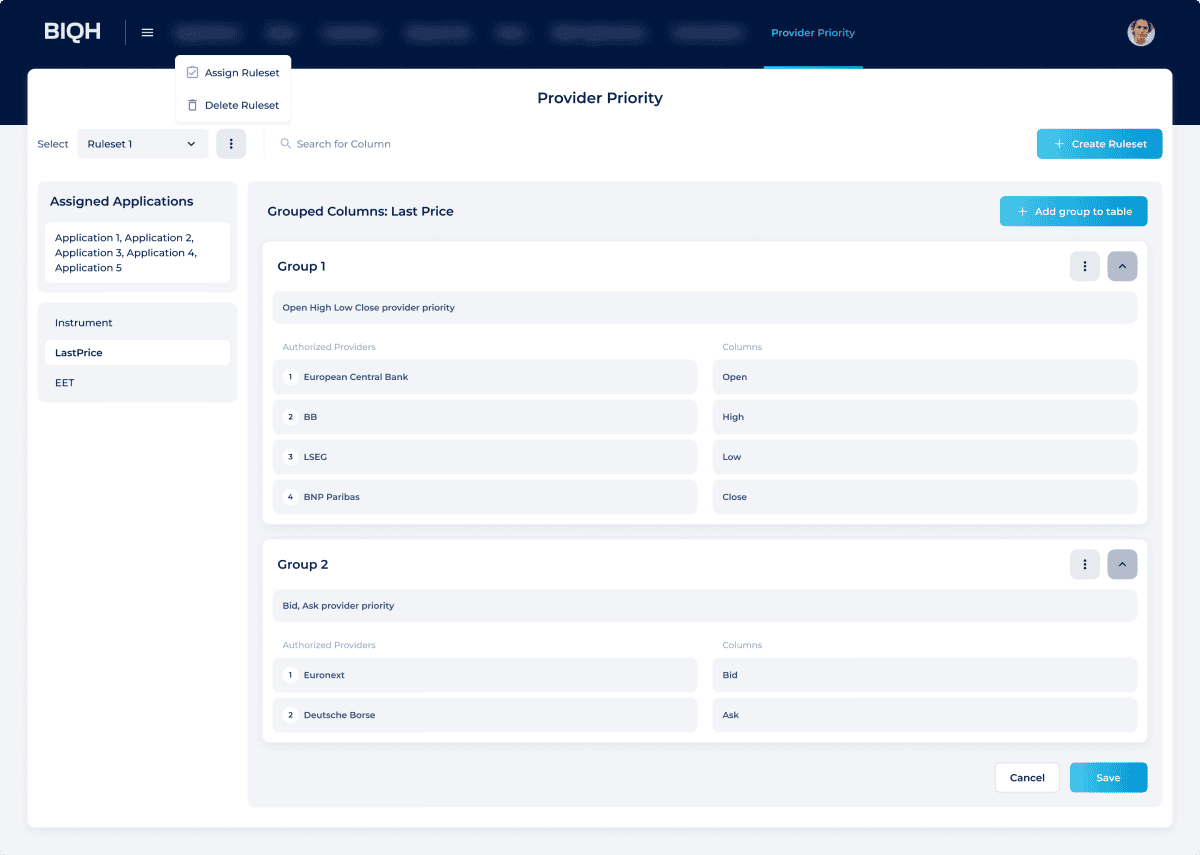
Figure 1: Impression of Waterfalling in the BIQH Market Data Platform.
Scenario 3: BIQH Waterfalling strategies
In scenario 3, you discover the true potential of waterfalling. This is where it gets really interesting: You can apply waterfalling not just to individual data fields or fieldgroups, but also incorporate intelligent conditions and dependencies that are precisely aligned with your specific market data needs. With these advanced “if-then” scenarios, you can develop four powerful strategies. These strategies help you bring data from data vendors into your assortment and efficiently distribute it from your golden copy database, your single version of the truth, to your applications. Strategy 4 is specifically designed to optimize data flows from your golden copy. Find out below how you can elevate your market data management to the next level with these approaches:
Strategy 1: All fields must always be filled
In this strategy, you treat each fieldgroup as a single unified set of data. Imagine a fieldgroup like BID and ASK, fields that you believe belong together and therefore should come from a single vendor. If data vendor A can only supply one of these fields, you switch to data vendor B, and if necessary, data vendor C, until you find a vendor that can fill the entire fieldgroup. This ensures that your datasets are always complete and consistent. This is a data optimization strategy.
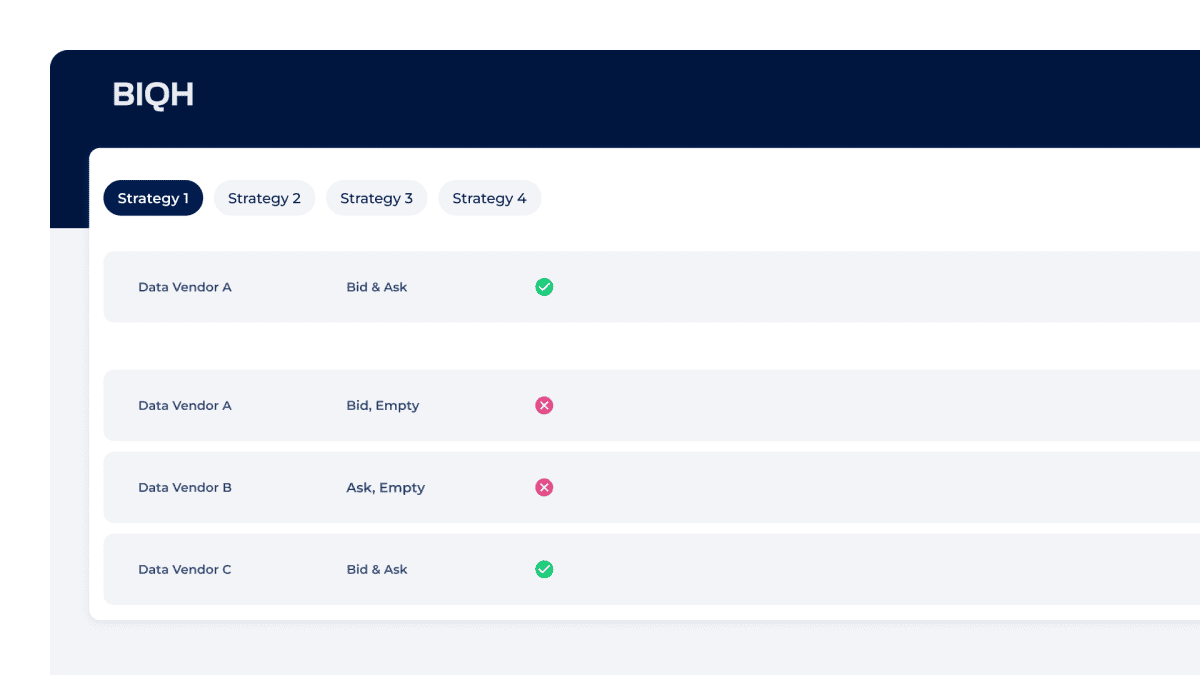
Figure 2: Strategy 1: All fields must always be filled
Strategy 2: At least one field must be filled
In this strategy, you prioritize data vendor A as long as at least one field in the fieldgroup is filled. If all fields remain empty, you switch to data vendor B, and if necessary, to data vendor C. This means that sometimes you won’t collect all the data, but this is a conscious choice to save costs. This is therefore a cost optimization strategy.
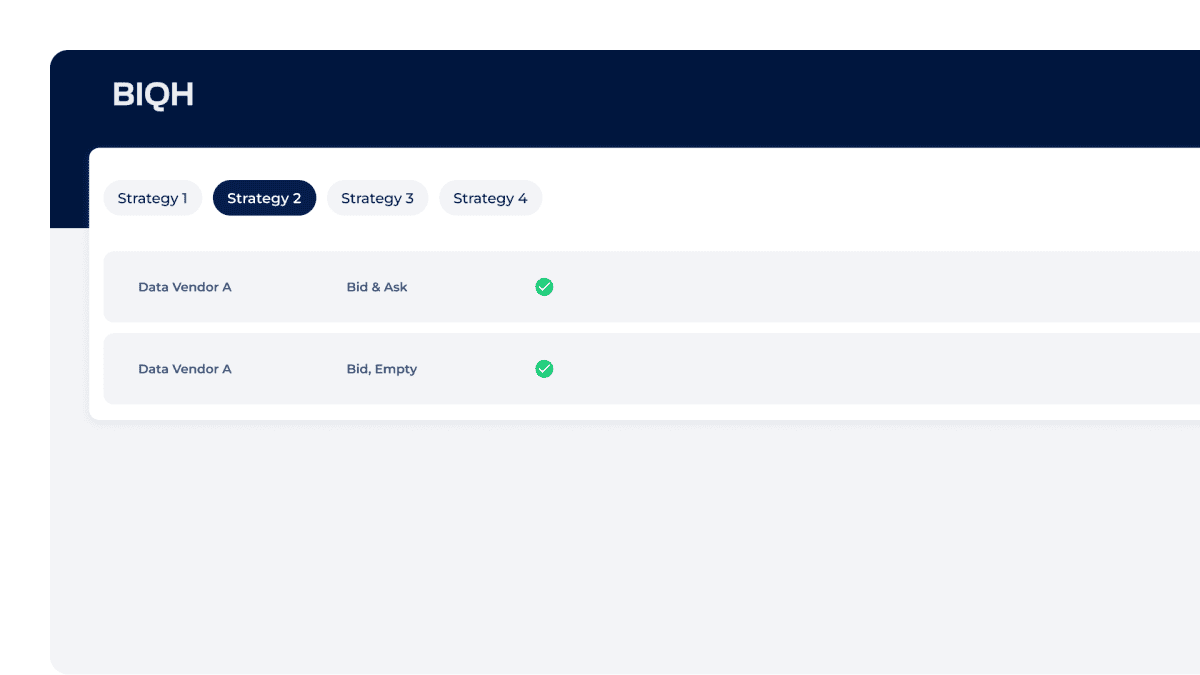
Figure 3: Strategy 2: At least one field must be filled
Strategy 3: At least this field must be filled
In this strategy, everything revolves around a specific field within a fieldgroup that must absolutely be filled. For instance, if BID is essential and you always want to receive it, you can set this as a requirement. As shown in the example, data vendor A meets this need even if ASK is not included. However, if ASK is filled but BID is not, you would still opt for data vendor B, as BID is the leading field. This strategy combines elements of both data and cost optimization, ensuring that the most essential information is always available without unnecessary expenses on less critical data.
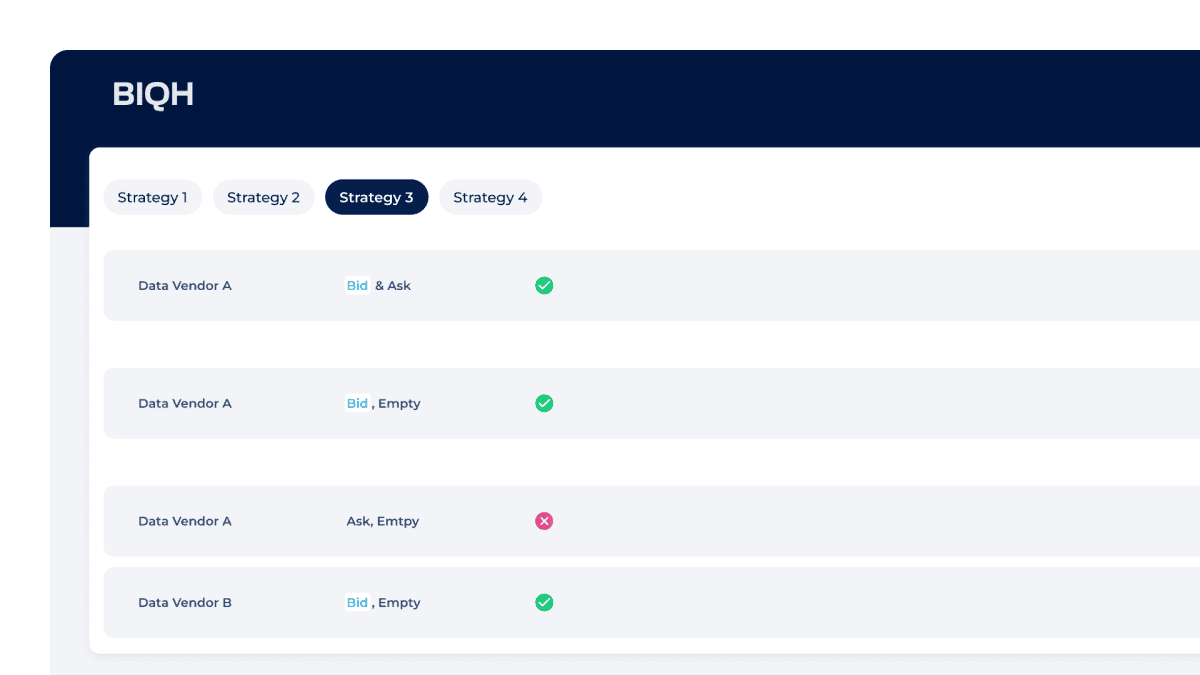
Figure 4: Strategy 3: At least this field must be filled
Strategy 4: Most recent data
In this strategy, you prioritize the most recent data, even if it means deviating from your preferred data vendor. This strategy is only applicable to data that is already included in your golden copy. Therefore, it is not a cost-optimization strategy, but rather about process optimization. This offers particular advantages when distributing data from your golden copy to your applications and endpoints. Here, it is not cost or quality, but the timeless of market data that is the deciding factor.
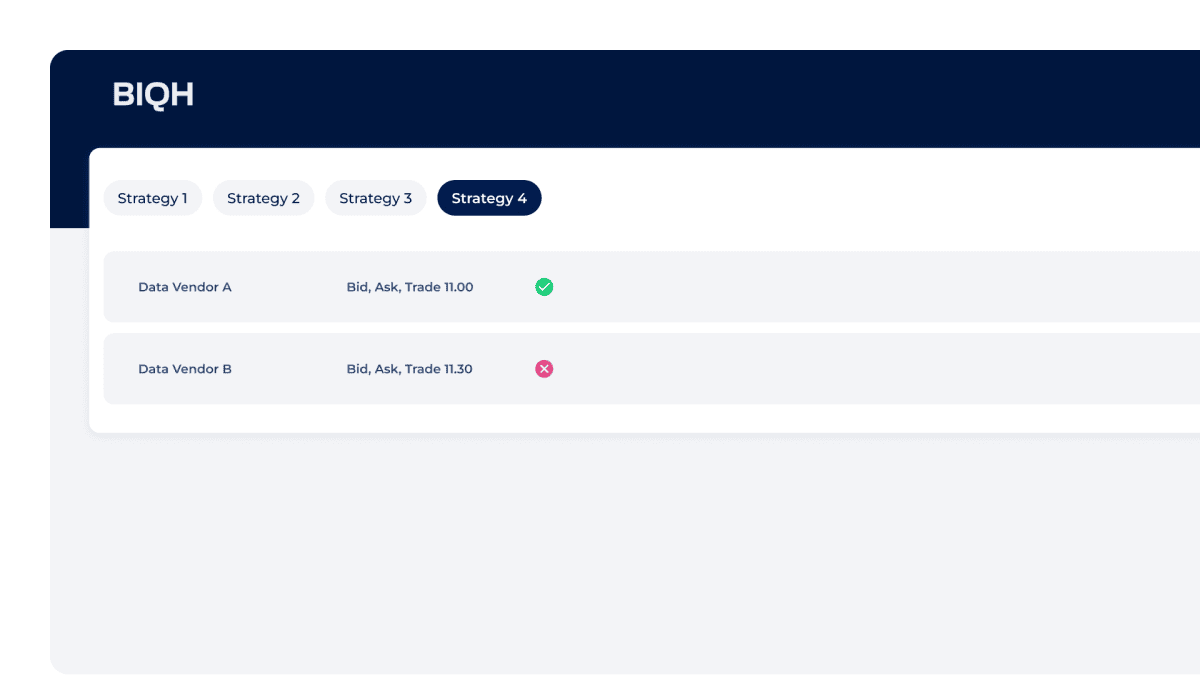
Figure 5: Strategy 4: Most recent data
Conclusion
Choosing the right waterfalling strategy for your market data is essential to save costs while ensuring the quality of your data. When you set everything up correctly, you can define a smart strategy for each fieldgroup that perfectly matches your business-specific requirements and preferences. This enables you to operate as a true market data strategist, raising the quality of your data, lowering costs, or achieving both. The BIQH Market Data Platform provides you with the flexibility and tools to effectively implement these strategies, ensuring that your data infrastructure always performs optimally. Want to see how this works in practice? Request a demo or download our Market Data Platform factsheet. Our team of BIQH professionals is ready to help you choose the perfect strategy for your situation.

